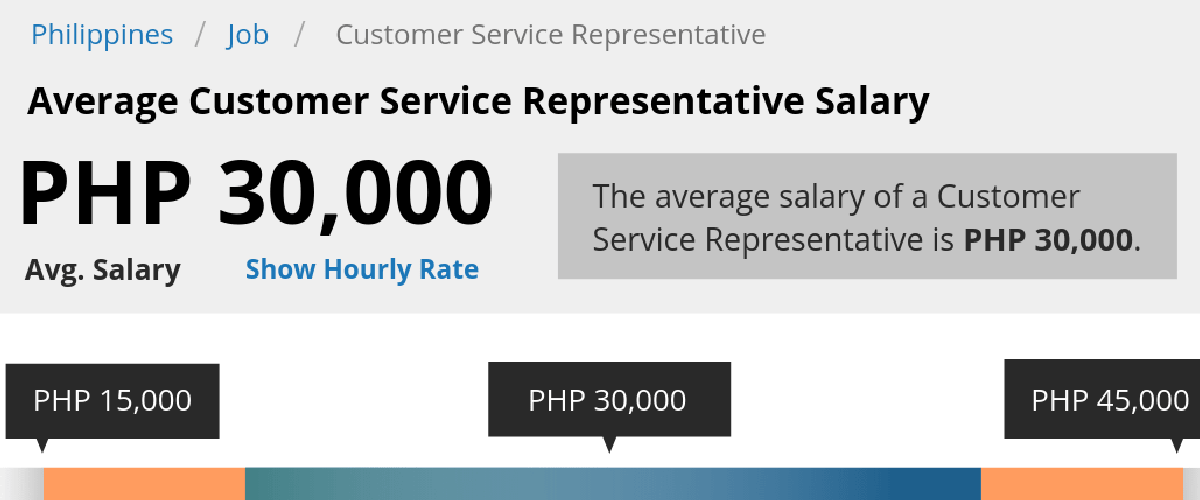by Jobs360 | Sep 3, 3019 | Job search tips

The discussion involving salary has always been a sensitive topic. It is never easy to approach the subject matter in front of recruiters or employers. The norm for applicants is to bring up any compensation-related matters at the final interview. Most employers offer competitive packages but negotiations can happen from time to time.
Even employees go through the same dilemma regarding a request for an increase in the base pay. In a traditional sense, your paycheck is the reflection of your value in an organisation. How do you determine your salary then? Is it based on seniority or experience? Is it based on the company’s success?

Local-owned companies value educational attainment. Many local business owners offer premium salaries for college degree holders. They offer a heftier wage to professionals with masters, PhDs, and doctorates.
Foreign-owned companies in the country apply the same standard. However, this can only be applied to certain industries. For example, an average software engineer can earn about Php 360,000 to Php 480,000 annually. A software engineer with a master’s degree earns about 25% more.
This is one of the biggest factors among the list. It summarises an applicant or employee’s job history. Employers usually look for applicants with years of experience doing the role or using a particular software.
Say two customer service representatives are applying for the same job. One has 10 years of CSR experience and the other has 5 years of CSR experience. After interviewing both, the hiring manager offered the same compensation and benefits.
Why is that? Though the other has a longer experience, the skills they both have are the same. Therefore, the hiring manager only offered as much to the applicant with 10 years of experience. To receive a higher offer, an applicant must have multiple experiences.
Say the 10-year experienced CSR have learned about multiple programs and software compared to the other one. Then there’s a possibility that she’ll receive a higher offer if the company is looking for a more experienced CSR with various skills.

Employers look for employees with multiple skills and experiences. For example, a CSR has exceptional sales skills and verbal and written communication skills.
A Lead Generation Specialist, on the other hand, has commendable sales skills, excellent written and verbal skills, and data mining skills. If a CSR competes with a Lead Generation Specialist for Outbound Lead Generation role, the role will likely go to the Lead Gen Specialist in terms of skills. This is mainly because data mining and research are some of the top requirements for an Outbound Lead Generation role. This is the reason skill is a relevant factor to determine salary.
The industry affects the compensation rate of the same job position. A general manager working in the automotive industry earns more than a general manager working in the wholesale food industry.
The reason is that sales are higher in the automotive industry as cars are luxury items buyers invest in. Another example is an accountant and a bookkeeper. Those that are working in specialised accounting BPO companies earn more compared to those working in local accounting firms.
The argument is that BPO professionals receive a higher compensation package because they have specialised skills that cater to foreign-owned companies’ needs.

The company size is relative to the industry. Larger companies with more resources are able to offer higher compensation packages compared to smaller companies. Start-ups and SMEs are likely working with limited budgets.
Since these companies have limited resources, the offer they present to applicants is often non-negotiable. For instance, a start-up BPO company can compete with the market and offer a competitive salary. However, larger companies can match up and offer higher base pay and add in additional benefits like health care insurance.
The job market follows the same law of supply and demand for products and services. The law states that if the quantity of applicants for the job position is low and the demand for the market is high, then the compensation package offer should be high and vice versa.
For example, the demand for mid-level SEO specialists is high. However, the quantity of applicants with mid-level SEO knowledge is low. This creates a competition between organisations thus increasing the competitive salary package above the average salary.
DOLE (Department of Labour and Employment) is a department in the government that handles labour and employment affairs. They set the minimum wage rate within the country.
Each region’s minimum wage rate differs from one another. The highest non-agricultural daily pay rate is in Manila which is Php 512. The minimum wage per day in Region III (except in Aurora) is Php 373 to Php 380.
A Junior Digital Marketer in Manila earns around Php 25,000 monthly. That doesn’t mean he will be earning the same here in Pampanga. The average salary rate for a Junior Digital Marketer in the region ranges from Php 18,000 to Php 22,000.
However, this would all depend on the experiences and skills of the Junior Digital Marketer. A Digital Marketer with wider knowledge and experience can receive or ask for a higher offer.
The standard working schedule in the country is a variation of 7 am to 4 pm, 8 am to 5 pm, and 9 am to 6 pm. The shift differential is applied to employees with less favourable shifting schedules like 10 p.m. to 6 a.m.
Since the undesirable working times can be a turn-off for professionals, companies pay a premium to retain employees and to attract candidates. Employees working between 10 pm to 6 am are entitled to receive a night shift differential compensation.
It’s computed by multiplying the hourly rate by 10% (night differential rate) and by the hours worked. Night Differential = hourly rate x 10% x number of hours. A prime example is a call centre agent working in the graveyard shift (10 p.m. to 6 a.m.).
If an average call centre agent earns Php 200/hr, then the computation would be: Night Differential = Php 200 x 10% x 8 hours Night Differential = 160

This determinant is applied to employees working in hazardous conditions. As the line of work constantly puts the professionals like police officers and firefighters in danger, the organisations compensate them competitively.
Firefighters receive a monthly base salary of Php 25,000 to Php 30,000. If we were to compare the salary base of a firefighter with a non-profit organisation worker, the position of the professional would be a mid-level corporate worker. The same rule applies to police workers. Did you know that the lowest ranking police officer (PO1) earns an average of Php 350,000 annually?
Performance reviews are commonly regulated within the office. They’re conducted to evaluate an employee’s performance and determine if the employee is up for a promotion or an increase in pay.
They may seem unimportant but are a determinant of base pay. Many companies run background checks to verify an applicant’s job history and check the applicant’s work ethic before hiring. Each evaluation and statement from previous employers can determine the fate of an applicant.
Bosses have the final say in everything. Their decisions are relative to many factors. They also have the power of approving and denying requests and demands for salary increase. However, note that bosses get recommendations from the HR and account managers. They do not dictate the salary of each personnel.
These are the factors that determine an employee’s salary. All factors may be considered by employers at once but that’s highly unlikely. Most hiring managers only consider a few determinants. For example, a marketing agency is looking to hire an SEO Specialist.
The factors that they would consider to determine the salary range of the SEO would be his experiences, his skills, and the company size of their agency. Make sure to do some research and assess the value you can provide to the business before demanding a ridiculous figure from your employer or the hiring manager. This can help you avoid giving off the wrong impression to others.
If you have any questions, please feel free to ask.
Email: jobs@jobs360.com.ph
Call:
Sydney: +61 2 9119 2578
Philippines: +63 45 499 3268
Address: SHORE360, INC. Mercedes-Benz Center, Manuel A. Roxas Hwy, Clark Freeport, Angeles, Pampanga, Philippines 2009
Jobs360
A division of Shore360, Inc.